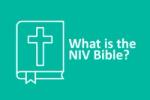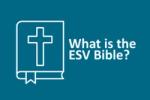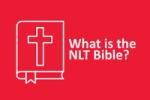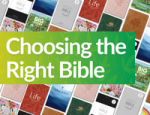Beautiful; Broken; Forgiven; Invited
Gerard Kelly
These four words do not only describe what it means to be a Christian, they describe what it means to be human
The Biblical narrative contains an ontological account on the meaning of our lives. It tells us who we are, where we are, what's gone wrong and how we can fix it. These are not the questions of religion alone, but of all philosophy; of all culture. Every movie you have ever seen; every song you have listened to; every dress you've ever bought; every colour you have ever chosen for your bedroom wall, points in some way to the answers you have found to these questions. They are human questions; puzzles we spend our whole lives working on.

When the media runs a story about the vulnerabilities of our economy these questions are being answered. This is who we are. This is how we should love. This is why we can't. This is what we must do to put it right.
When climate change activists lobby governments for political reform, they too are offering answers. This is what it means to be human. This is how we live with our planet. This is where we've gone so badly wrong. This is what we must do. This and only this will save us.
When a high-profile pedophile is jailed and anxious parents gather at the courtroom steps to scream abuse, they are answering these questions. This is less than human behaviour. We don't want this in our world. We need to fix it.
When a war criminal sits, ageing and broken, at the tribunal of the Hague, and the world's press crowd in to take pictures of the fallen monster, the same questions lie just below the surface. He has committed crimes against humanity; against what it means to be one of us. We won't accept a world in which such horrors go unpunished. We want a different future.
And when I discover that I cannot love as I want to; that selflessness flits away from me like a fish that refuses my small net; that I do what I don't want to do; that I am not what I want to be, then I, too, am wrestling with these questions. What does it mean for me to fulfil my humanity? What is is that drives me to seek beauty; that recognises peace as positive and yet so powerfully draws me in another direction?
What is is that drives me to seek beauty; that recognises peace as positive and yet so powerfully draws me in another direction?
The story that is told through the 66 books of the Bible presents these questions in a series of puzzles. In its founding document, known to us as the book of Genesis, the first man, Adam, is given three such puzzles to solve.
Firstly, he is placed in a garden and asked to care for all the living creatures found in it. And yet he knows, deep down, that he is one of them. He is an animal like other animals: driven to eat; seeking shelter; sexually active. And yet he is not. There is a spark in him; of intelligence; of language, that sets him apart. He is asked to name the donkey. The donkey is not asked to name him. What does this mean, to be so evidently part of the created order, and yet so evidently set apart from it? What is this gift, and what responsibility comes with it?
Secondly, he is not allowed to fulfill this responsibility alone. He is given a companion, the woman, Eve. Here the puzzle becomes more vexing still, because she is like him in every way, and yet different from him. He is driven to seek union with her by a force more powerful than any he has yet experienced, and yet the union brings its own troubles, because she is 'other' to him. This second puzzle, in which the man must acknowledge that he is not alone in bearing the gifts of humanity, is incredibly deep. He is simply not allowed to work out for himself what it means to be human - he must do it in relationship; in community. Harder still, the community will not be of clones, but of 'others'. Their perspective will not always be identical to his. They will challenge him, driving him to overcome difference in order to fulfill his evident purpose and responsibility. Thus is born not only humanity itself, but human society, and thus begins the second puzzle, the puzzle of community.
Thirdly, and underlying all, the man and woman are confronted with the puzzle of God. This is the deepest puzzle of all, and is woven somehow into the very fabric of the other two puzzles. Here, once again, the man and woman find themselves victim of two opposite forces. On the one hand they seek intimacy with the God who has made them. Deeper than the drive to eat; to seek sexual fulfillment; to find their place in the world, is the drive to know who made them. There is a space at the centre of the garden that is occupied by God himself, and seeking the meaning of this space is a task that arrives in the heart of the man and the woman as certainly as the sun rises on each new day. Everything in the garden points towards this space; every answer raises this one question. And yet the man and woman finds within themselves another force. It is a force called fear and, strangely, it drives them to run from the very intimacy they long for. Turning, running, spinning, they find themselves rocked by these two forces. Driven to seek God. Driven to run from him. Wanting intimacy. Fearing intimacy. Seeking approval. Terrified of disapproval. And thus is born the deepest puzzle of all, the puzzle frim whose twisting complexities the religions of the world will flow. The puzzle we will spend centuries attending to. The puzzle most of us have still not solved.
The unfolding narrative of the Bible offers a deep and consistent response to these puzzles, and it does it in terms of four stages or categories. It describes us as beautiful, broken, forgiven and invited.
Beautiful, because our story must begin not with our current condition but with God's intentions for us. The baseline category by which all theology can be understood is creation - God is first and foremost our maker. He has made a cosmos over which the word 'good' is scrawled in letters bigger than the sky. Not only are we part of this good world, but we have a place in it that is unique and mysterious. Finding out what that place is, and how we can best live it, is what religion and philosophy are all about.
Broken, because we all know that something is wrong. Just as the aching beauty of the world catches our breath, so does the nagging sense that all is not as it should be.
Forgiven, because our story takes a turn, in the life, death and resurrection of Jesus, that delights and surprises us and changes our history forever. The coming of Christ reveals to us the full picture of who God is and changes forever our relation with him. Something happens in the death of Christ that makes it possible for God to forgive us completely - so that he waits, as the Prodigal Father, not with a stick with which to beat us but with arms wide to embrace us. Though our capacity to receive and enjoy this forgiveness is entirely dependent on our response, the forgiveness itself is not. The message of the cross is not 'you can be forgiven' it is 'you are forgiven'. The father waits. The only missing piece of the puzzle is our return.
The message of the cross is not 'you can be forgiven' it is 'you are forgiven'
Invited because our return is not the end of the adventure but the beginning of a whole new chapter. There is a feast; a banquet, prepared for us. We are invited to enjoy now the life that intimacy with God makes possible and to live forever in the Kingdom of Joy that Christ has inaugurated. The invitation is to all of us. It stands open, each of our names engraved on it. It is unconditional; free, waiting only for our RSVP. Thus our story has not only a beginning, but an end. And the end, like the beginning, is creational - rooted in the artfulness and grace with which God makes things. The narrative of the Bible is framed by two such makings - the making of a garden and the making of a city. Both are earthly; material; grounded in sensory experience. Both hold out the possibility of cooperation between human and divine agency; of life lived in the reality of intimacy with God.
The journey that began with the makers intentions for us ends with those intentions fulfilled. Broken things made beautiful again.
Gerard Kelly is a respected speaker and writer. He is on the leadership team of Spring Harvest, lives in missional community in France and leads the Bless Network, who seek to engage young people in mission on the European mainland. His most recent books include Twitturgies and Church Actually: God's Brilliant Idea.
Latest Blogs

Bible
What is the New International Version (NIV) Bible?
Finding the right Bible isn’t easy. There are dozens of translations and hundreds of editions to choose from. Our new series of guides is here to answer your questions about the different Bibles on offer today.

Bible
What is the English Standard Version (ESV) Bible?
Finding the right Bible isn’t easy. There are dozens of translations and hundreds of editions to choose from. Our new series of guides is here to answer your questions about the different Bibles on offer today.

Featured
What is the King James Version (KJV) Bible?
Finding the right Bible isn’t easy. There are dozens of translations and hundreds of editions to choose from. Our new series of guides is here to answer your questions about the different Bibles on offer today.

Featured
What is the New Living Translation (NLT) Bible?
Finding the right Bible isn’t easy. There are dozens of translations and hundreds of editions to choose from. Our new series of guides is here to answer your questions about the different Bibles on offer today.

Bible
Choosing The Right Bible
With more than 20 English Language translations each available in 25 or more different editions the choice of Bibles excites and bewilders. Choosing the right Bible for you is important - even if you already have more than one.

Spiritual Growth
LENT COURSES - How to choose the right one for you
Long overshadowed by the celebrations of Easter Sunday, Lent is being rediscovered as a sacred time of reflection and renewal in its own right and a time of preparation for the joyous seasonal finale.
